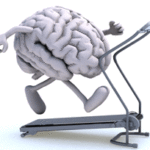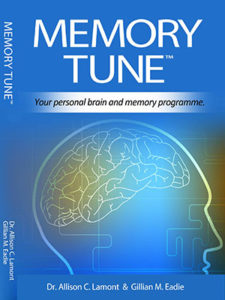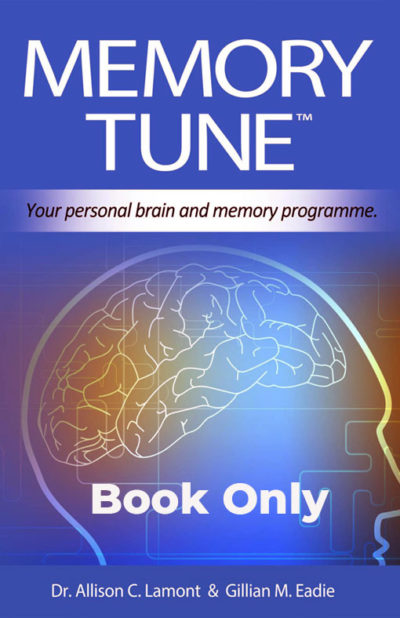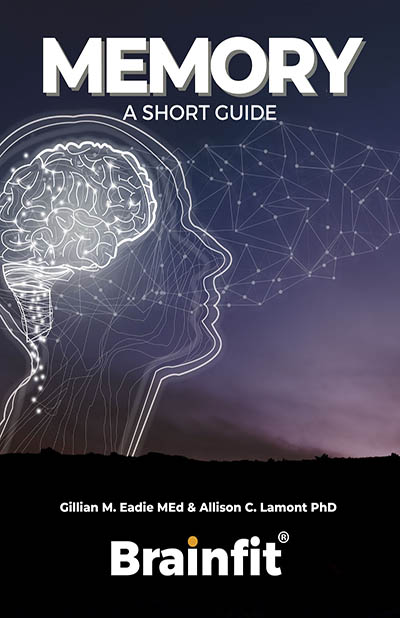Yes, if it meets these 5 conditions
 Today we are confronted with a wide range of increasingly abstract and interconnected problems. Successfully dealing with this environment requires a highly fit brain, capable of adapting to new situations and challenges throughout life. We expect cross-training the brain to soon become as mainstream as cross-training the body, going beyond unstructured mental activity and aiming at maximizing a variety of brain functions. There is a growing landscape of lifestyle and brain training options to enhance brain health and performance across the lifespan – will they work?
Today we are confronted with a wide range of increasingly abstract and interconnected problems. Successfully dealing with this environment requires a highly fit brain, capable of adapting to new situations and challenges throughout life. We expect cross-training the brain to soon become as mainstream as cross-training the body, going beyond unstructured mental activity and aiming at maximizing a variety of brain functions. There is a growing landscape of lifestyle and brain training options to enhance brain health and performance across the lifespan – will they work?
How is brain training different from mental stimulation?
Under what conditions can brain training work?
Why do we still often hear that brain training does not work?
- It must engage and exercise a core brain-based capacity or neural circuit identified to be relevant to real-life outcomes, such as executive attention, working memory, speed of processing and emotional regulation, as well as others discussed throughout the interviews with scientists in this book. Many supposed “brain training” games fail to provide any actual “brain training” because they were never really designed to target specific and relevant brain functions.
- It must target a performance bottleneck – otherwise it is an exercise in vanity similar to building the largest biceps in town while neglecting the rest of the body. A critical question to ask is: Which brain function do I need to optimize? With physical fitness, effective training begins with a target in mind: Is the goal to train abdominal muscles? Biceps? Cardio capacity? So it goes for brain fitness, where the question becomes: Is the goal to optimize driving-related cognitive skills? Concentration? Memory? Regulating stress and emotions? The choice of a technique or technology should be driven by your goal. For instance, if you need to train your executive functions but use a program designed to enhance speed of processing, you may well conclude that this program does not “work.” But this program may work for somebody whose bottleneck is speed of processing (as often happens in older adults).
- A minimum “dose” of 15 hours total per targeted brain function, performed over 8 weeks or less, is necessary for real improvement. Training only a few hours across a wide variety of brain functions, such as in the “BBC brain training” experiment, should not be expected to trigger real-world benefits, in the same way that going to the gym a couple times per month and doing an assortment of undirected exercises cannot be expected to result in increased muscle strength and physical fitness.
- Training must adapt to performance, require effortful attention, and increase in difficulty. This is a key advantage of computerized “brain training” over pen-and-paper-based activities. Think about the number of hours you have spent doing crossword or Sudoku puzzles, or mastering any new subject for that matter, in a way that was either too easy for you and became boring or way too difficult and became frustrating. Interactive training has the capacity to constantly monitor your level of performance and adapt accordingly.
- Continued practice is required for continued benefits. Just as you wouldn’t expect to derive lifelong benefits from running a few hours this month, and then not exercising ever again, you shouldn’t expect lifelong benefits from a one-time brain training activity. Remember that “cells that “fire together wire together” – while the minimum dose described above may act as a threshold to start seeing some benefits, continued practice, either at a reduced number of hours or as a periodic “booster,” is a final condition for transfer to real-world benefits over time.
(This is an adapted excerpt from the book “The SharpBrains Guide to Brain Fitness: How to Optimize Brain Health and Performance at Any Age”, April 2013; 284 pages).
 Thousands of people have now used this tried and tested course. It comes to you over seven weeks and is accompanied by a print version if the course, also.
Thousands of people have now used this tried and tested course. It comes to you over seven weeks and is accompanied by a print version if the course, also.
$169.00 for the full course and book.
“Thank you both so much for this course which has given me the confidence and the tools to deal with my memory problems. I now enjoy puzzles, crosswords and memory tests.. I used to avoid them like the plague. Meeting people and remembering their names is now a pleasant experience rather than a nightmare! You have shone a light at the end of what was fast becoming a very dark tunnel. Thank you.” Maria G.




